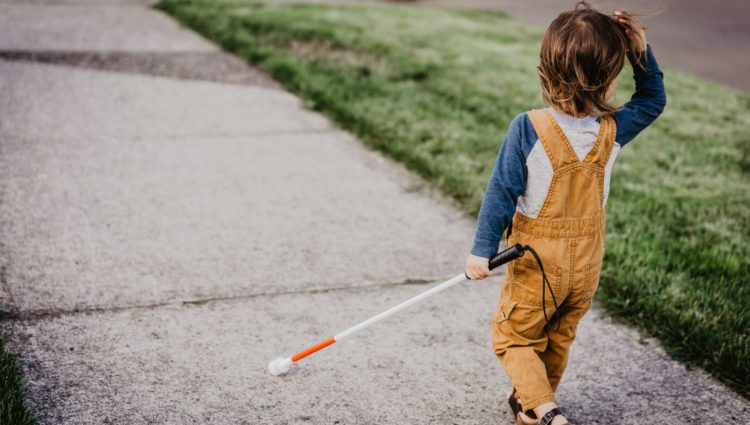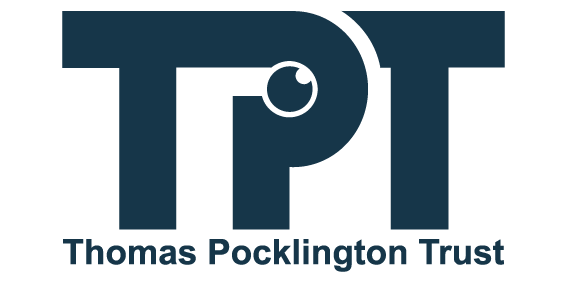Suzy Mcdonald and Terri-Ann Bent, habilitation specialists at Birmingham Education Habilitation Service, led the mobility, orientation, and independence workshop at the Lost in Transition conference, held in June 2021.
The workshop focused on the building blocks needed for maximum independence. It was stressed that teaching these skills at an early age is crucial for any vision impaired person to be fully independent in adulthood.
The building blocks discussed included:
- Personal care.
- Travel.
- Money skills.
- Sustenance.
- Self-advocacy.
Suzy said: “We work really closely with the families throughout the whole of the young person’s education. Without the support of the families, it can be a barrier; we need the families to deliver self-advocacy and independence skills through their journey.”
Personal skills create transferable skills
They began their presentation by talking about teaching young people at an early age crucial personal care skills. This would include brushing their own teeth, early dressing skills, and identifying their own clothes.
In preparation for supporting someone going to university or employment they would teach them to learn how to iron, use a washing machine, and make their own bed.
Suzy said: “It is all about having transferable skills. It’s the early skills they develop at home that can be transferred to different settings which is important, whether that’s in the workplace or in their own home, independently or in a college.”
Travel – the biggest building block
Travel was noted as the biggest building block for any habiliation specialist working with a young person. It’s fundamental they learn how to move around independently. The travel building block phase covers personal and road safety, using a cane, and planning a journey.
Suzy said: “It’s really important they know how to access travel apps, plan journeys independently, are able to ask for help. We will consider does the young person know where they live, can they get home alone, and do they know their own address?”
It was highlighted that a lot of teenagers will be self-conscious about their visual impairment and may reject using the skills at the time, but there is still value in teaching them.
Terri said: “It’s worth recognising the personal journey of each visually impaired person and when they want to learn, because quite often we work with teenagers or young adults who don’t want to use a white cane, for example.”
Teaching when they are younger, when they’re less resistant to the idea about being different to other people is important.
“The earlier you can teach those skills the better, even if they choose not to use them. We have teenagers who at seventeen or eighteen years old will realise that they’re missing out on what their peers are doing, so will go back to those skills that they’ve been taught earlier.”
Teaching the value of money
Suzy and Terri then went on to discuss money skills and how crucial it is to teach young people about the value of money, and budgeting from an early age.
Terri added: “If you don’t get the engagement early it’s much harder. We work with children early on with their money skills; we will ask them to identify what’s money, what’s keys, what’s metal. It’s about identifying the value of money too. Asking them how much is a pint of milk, how much does a car cost? And getting them to go into shops and buy things.
Contactless is a big concern, it means young people are now losing the value of money. I will ask my young people, if they spend on their card to get a receipt and track it in an app so they are still learning how to budget.”
Suzy said: “A lot of the young people are tech savvy, they are using their phones to pay for everything, using voice on over on their phone to do their internet banking and to know their balance.
For us it’s about staying up to date with them, working alongside them to make sure when they are ready to go to university or employment, they’ve got everything in place.”
Ensuring healthy food choices
Sustenance was raised as the final building block; this covers food and exercise. They will teach children from nursery school to work on basic skills.
Terri said: “From nursery we cover chopping, pouring, spreading, and then by the time they get to the top of primary we’ve got children making simple snacks and drinks.
By giving them the opportunity to shop for themselves, they can understand how to make healthy lifestyle choices, as well as introducing the skill of asking for assistance in the supermarket when needed.”
Self-advocacy is crucial for any vision impaired young person
Self-advocacy was raised as a crucial skill that runs throughout all the building blocks. Young people should be able to identify their own needs, how best to support themselves and be able to ask for help. Additionally, getting families to help young people develop these skills throughout this journey is fundamental.
Terri said: “It’s so vital that families, QTVIs and school staff are involved in this journey. If we are the only people teaching that young person a skill once a week and nothing happens in between our visits, or at home, they will make no progress.”
It is fundamental for any young person with vision impairment to have all of the building blocks in place, so that when they transition into adulthood, they are not overly reliant on others.
A list of recommended apps for young people with vision impairment:
For further apps and details of accessible features within technology, check out our Technology in Education pages.






